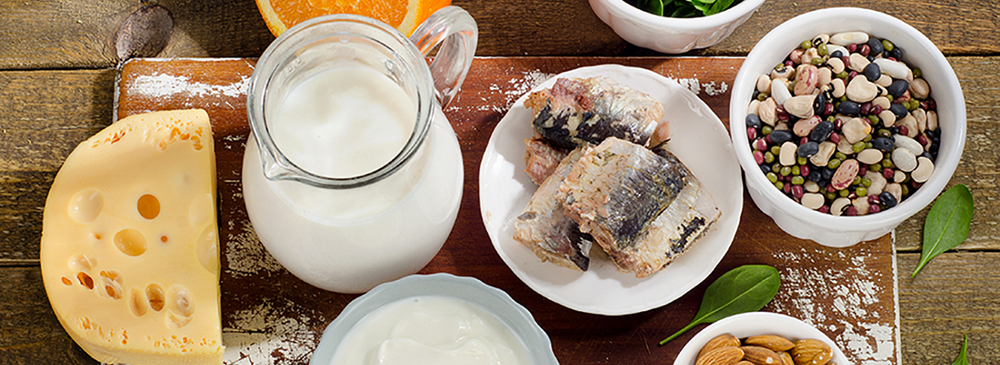How much calcium do you need and where should it come from?

Believe it or not, how much calcium is needed and what sources of calcium should be favored remain areas of controversy. There is even debate as to whether people should take calcium supplements in the first place. The US Preventive Services Task Force, for example, recommends AGAINST calcium supplements for the general public (though emphasizes that this advice does not extend to people with documented osteoporosis).
Why the controversy? Well, turns out that the highest per capita calcium intake on the planet is found in the United States. And where is the highest rate of osteoporosis? In the U.S. of A. Clearly there is much more to the calcium story than just getting lots of it.
A major reason for the development of osteoporosis is lack of weight-bearing exercise. We sit too much and stand/walk too little. Astronauts, some of the worlds fittest individuals when they go into space, lose 1-2% of their bone mass per MONTH when away from earth’s gravity. Despite a carefully curated nutrition plan. Turns out, you can’t just push calcium into bones – bones need a stimulus to pull the calcium in. So first rule of thumb for keeping your bones strong? Move. That means walking, running, dancing – any activity where your body has to fight gravity.
In addition, just getting your calcium from supplements may not be ideal. Studies have shown that calcium supplements can increase your risk of kidney stones and cause constipation. Issues not seen when calcium comes from food.
If you’re a regular reader of this blog, I’m sure you just recognized the theme that emerges again and again in published science – getting your nutrients naturally from food is far superior to obtaining those same nutrients from pills.
So what are good dietary sources of calcium?
Here are some rounded estimates:
1 cup low-fat cottage cheese 150 mg
1 ounce cheddar cheese 200 mg
1 ounce Parmesan cheese 350 mg
1 cup low-fat milk 300 mg
1 cup plain yogurt 400 mg
1 cup almond milk 500 mg
1 ounce almonds 100 mg
3 TBSP chia seeds 250 mg
1 cup cooked collard greens 250 mg
1 cup white beans 200 mg
3 ounces canned salmon 250 mg
Although agreement is not absolute, the recommended daily intake (RDI) for calcium is between 1000 and 1200 mg per day for adult men and women. And that’s the TOTAL amount – NOT the supplement amount. In other words, if you eat a cup of plain yogurt, a handful of almonds and 3 ounces of salmon, you don’t need an extra 1000 mg. You need an extra 250 mg. Which you could get from a small chunk of Parmesan.
This fits in with the US Preventive Task Force conclusion that the general public should not need calcium supplements. But that only makes sense if people eat real whole foods that are naturally calcium rich.
Step One's Anytime Sprinkle and Smoothie Mix are designed to go with yogurt. Given that REAL yogurt (I’m not talking about Yoplait here) is full of beneficial probiotics and a great natural source of calcium, the combination with Step One Foods really packs a nutritional punch.
I take either the Sprinkle or the Smoothie Mix and put it directly over a cup of vanilla Greek yogurt. I admit that I cheat and don’t even bother with a blender for the Smoothie Mix. And I add a handful of blueberries or strawberries on top. Result? I’m full all morning long, I’ve supplied my gut with beneficial pre and pro biotics – and I've accounted for nearly half of my calcium RDI. Oh – and I’ve also helped keep my heart healthy and cholesterol low. And fought back inflammation with all those antioxidants. Now THAT’s a great start to the day. Not one pill required.

Tested & Proven Results.
- Cardiologist formulated
- Supported by over 500 publications
- Clinically-proven, in a double-blind randomized trial with Mayo Clinic and The University of Manitoba
80% of participants lowered their cholesterol in just 30 days. With just two servings per day, Step One Foods offers a proven-effective way to naturally lower LDL (bad) cholesterol.
Get heart health tips and articles like this, delivered right to your email.
New articles every week.
You may also like...

7 Hacks for Celebrating the Holidays Without Sacrificing Health Goals

You don’t need to avoid foods with cholesterol…except for these



